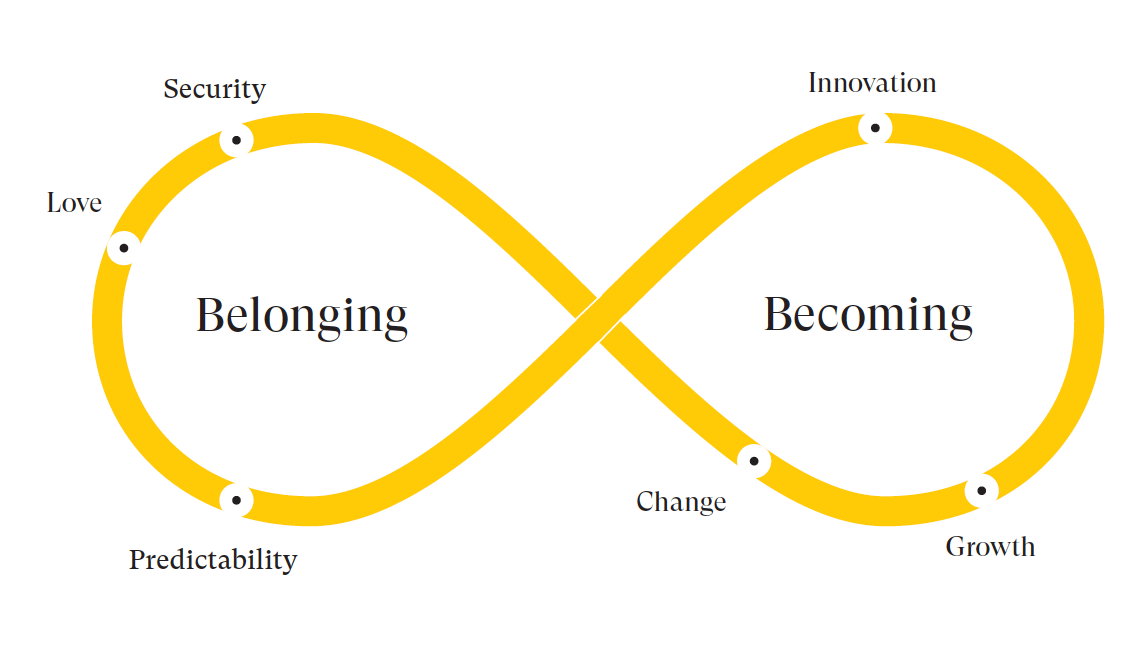Daniel von Appen on Unsplash
How we can productively deal with changes outside of our control
It’s like we’ve been sitting in a packed dining car at lunch time, when the train driver suddenly slams the breaks and launches us out of our seats. We attempt, as if in slow motion, to dodge the spray of beer, to shield our face from stray pieces of goulash – fork and knife already quivering in the wall. And as we come to, we stare in wonder at the world, which is now so different from how it was before.
This is how a friend of mine described the situation to which Germany and the rest of the world has woken up to in the course of the corona pandemic.
We belong to those of us who for a long time have wished for this country and even the entire world to fundamentally change. We want an economy which respects our planetary borders, and a politics which stands up for more just social systems. We want less “performance, speed and size”, and more “depth, consciousness and quality”.
Now our old system has abruptly ground to a halt. And we’ve come to realise that it’s not that easy of a change to deal with. Because this wasn’t our choice and we don’t know what’s coming at us. How much would we prefer a well thought out transformation plan, which we could diligently work away at! A step by step effort to remake our energy, healthcare and mobility sectors… But no – we’re facing a process of change without a known course or outcome.
Our body knows how to deal with change better than our mind does
This kind of change is frightening. The fear first emerges in the mind. Interestingly, body therapists relate that our bodies are actually good at intuitively dealing with change (so long as they are not heavily traumatised). Resistance against the new accordingly occurs predominantly in the mind. The mind tries to order and control the unknown.
Our mind wants security. It creates it by forcing the unknown into known categories. In times of unrest or even chaos, we try to create order through strong structures. We follow rules, conform to social norms, meet expectations, demonstrate performance and build consensus.
Each of us has their own strategies of psychological stabilisation. But most of us have certain habits, rituals and traditions that make us feel in control and able to make plans. This control, which is to a certain extent always a fiction, is shown to be particularly fragile in the current crisis.
How do we react to losing control?
From ourselves and from conversations with colleagues, we’ve noticed that many just try to carry on as usual. Except from home, sometimes with needy children and tense partners in the background. Many even seem to turn it up a notch, working longer, faster and more intensely. Bettina tells me that she spends nine hours a day on Zoom, I sometimes work on two screens and my phone at the same time. In the evening we feel completely wired. Staring at screens all day, it’s easy to forget that you have a body.
In times of crisis, resorting to the familiar can stabilise us, but perhaps also make us miss an update. Too much routine doesn’t just lead to boredom, it also deprives us of the chance to relate to life anew, experience new things and develop new competencies.
A healthy balance between belonging and becoming
Since birth, our individual path oscillates between the poles of security/belonging and change/becoming. A balance between both movements is important for our health.

We’ve all seen it: small children walk safely holding hands with their parents, then let go to explore something new in their environment, and return again to their parents. This movement accompanies us into old age. Bit by bit we change by means of it, extend our radius of comfort, and learn to hold more diversity and complexity.
Everybody knows this moment of change: just now one was content with the status quo, and suddenly it gets boring. Then we usually start changing something in our outer life: we buy new clothes, go travelling, try to change our partner or occupy ourselves with new organisational models for companies.
Changing who we are as a person – letting go of old beliefs, discovering new values and preferences, learning new competencies, and trying out new forms of behavior – is usually only the second step. Often we only take it when the changes in our outer life haven’t brought about the hoped for satisfaction.
In times of crisis, old structures dissolve and we lose stability
But what about when the impulse to change doesn’t come from within myself, but is forced upon me by external circumstances? Right now a lot of external structures are dissolving – not just stock markets, but also familiar daily routines and everyday office life. This makes the world feel less safe. We are confronted with two options:
I could stabilise myself with more routine, work and business.
Or I could consciously allow myself to feel all that is new, unknown and frightening, and use the crisis to get to know myself better, to develop new and innovative practices.
I could ask myself questions like: Who am I in this exceptional situation? How am I reacting to the crisis? What automatisms are kicking in? Where do I feel safe, where can I relax? When do I avoid unpleasant emotions? What does my body need?
I could then apply these reflections to my daily work life. Instead of mechanically going about business as usual, I could pause and set intentions: How do I want to structure my day in the home office? How many hours do I want to spend in front of a screen? How am I going to take breaks?
Only from a certain distance can I develop creative practices that are good for me in this new situation. Perhaps I’ll start taking some calls while out on a walk, take a hula hoop break every 52 minutes, or meet colleagues for an evening meditation on Zoom.
Corona is making us choose: we can stick to our old habits, even strengthen them. This may make us feel somewhat stable. But, best-case scenario, everything stays the same. It’s not a great option, given that the previous status quo was composed of a system developed for a now bygone world, and which for long has not done justice to present-day realities.
Or we use the unusual freedoms of today to turn inwards and sound out new depths. This entails the high risk of being confronted with unpleasant feelings and sensations. But it also entails the chance of discovering entirely new facettes of ourselves and the world.
*** *** ***
Joana Breidenbach, Bettina Rollow, Rivka Halbershtadt
